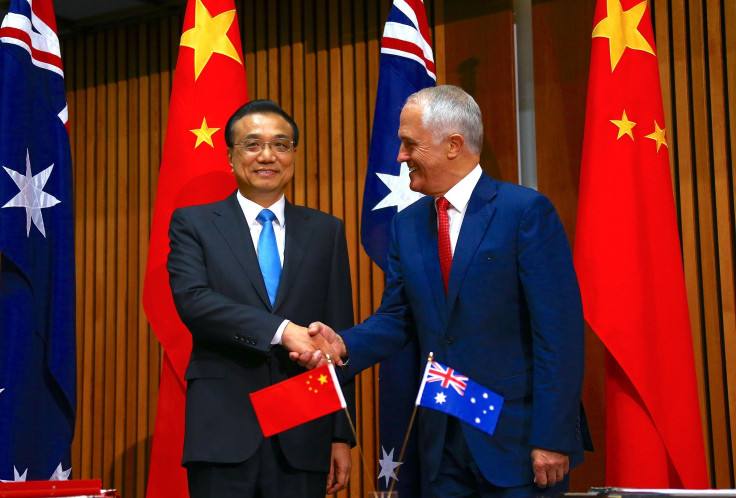Australian academic barred from leaving China on 'suspicion of harming national security'

An Australian academic who was disallowed from leaving China by state security agents was subjected to another round of questioning. Chongyi Feng, associated professor at the University of Technology Sydney, was barred from leaving for a flight to Sydney twice late last week.
Feng is currently living in a hotel with his wife. No formal arrest has been made against him.
The incident comes on the heels of a visit to Australia by Chinese Premier Le Keqiang, marking the first visit by a Chinese premier Down Under in 11 years. Li met with Prime Minister Malcolm Turnbull to discuss trade relationships and the Australian concern of picking sides between the United States and China.
Feng’s friend, John Hugh, learned of the incident on a phone call with Feng’s wife. "She said they interviewed him yesterday but they still didn't tell him when he could leave," Hugh said, speaking with AAP.
Feng, who has been told to not talk to the media, said he was not certain he will be able to come back to Australia. “State security is questioning him about who he met while in China, about human rights lawyers,” Chen Jinxue, Feng’s lawyer, said. “They want to know more about his research into human rights lawyers and he has been barred from leaving China on suspicion of harming national security.”
Feng, who is a China studies specialist at UTS, has been critical of the Chinese Communist Party and a recent series of concerts in Sydney and Melbourne that marked the 40th anniversary of leader Mao Zedong. He was in China the last few weeks researching human rights lawyers, several of whom were victims of a crackdown at the hands of officials in 2015.
Last Monday, Feng was questioned by Chinese security agents in the city of Kunming. The professor’s case has been represented in Canberra and Beijing by former foreign minister Bob Carr. UTS said they have made an appeal to the Chinese Consulate in Sydney. The Australian Values Alliance, a group of Chinese people “advocating for safeguarding democracy, human rights, equality and freedom” that Feng is a member of, has urged the government to help secure Feng’s release.
Meanwhile, the Department of Foreign Affairs and Trade has said it can only offer assistance related to counselling to Australian citizens. They said Feng, a permanent resident, had not entered China on an Australian passport. “However, the government is monitoring developments closely and has raised this case with senior Chinese officials,” a spokeswoman said.





















